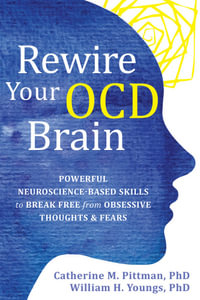Does the brain create the mind, or is some external entity involved? In addressing this "hard problem" of consciousness, we face a central human challenge: what do we really know and how do we know it? Tentative answers in this book follow from a synthesis of profound ideas, borrowed from philosophy, religion, politics, economics, neuroscience, physics, mathematics, and cosmology, the knowledge structures supporting our meager grasps of reality. This search for new links in the web of human knowledge extends in many directions: the "shadows" of our thought processes revealed by brain imagining, brains treated as complex adaptive systems that reveal fractal-like behavior in the brain's nested hierarchy, resonant interactions facilitating functional connections in brain tissue, probability and entropy as measures of human ignorance, fundamental limits on human knowledge, and the central role played by information in both brains and physical systems.
In Brain, Mind, and the Structure of Reality, Paul Nunez discusses the possibility of deep connections between relativity, quantum mechanics, thermodynamics, and consciousness: all entities involved with fundamental information barriers. Dr. Nunez elaborates on possible new links in this nested web of human knowledge that may tell us something new about the nature and origins of consciousness. In the end, does the brain create the mind? Or is the Mind already out there? You decide.
Industry Reviews
"Brain, Mind and the Structure of Reality is a worthwhile read for scientists as well as
nonscientists interested in the origins of consciousness. The author presents many thought-provoking observations and hypotheses and in many cases demonstrates his ability to present complex physical and mathematical phenomena in a way that will be readily understood by readers without substantial training in either discipline." --JAMA

























